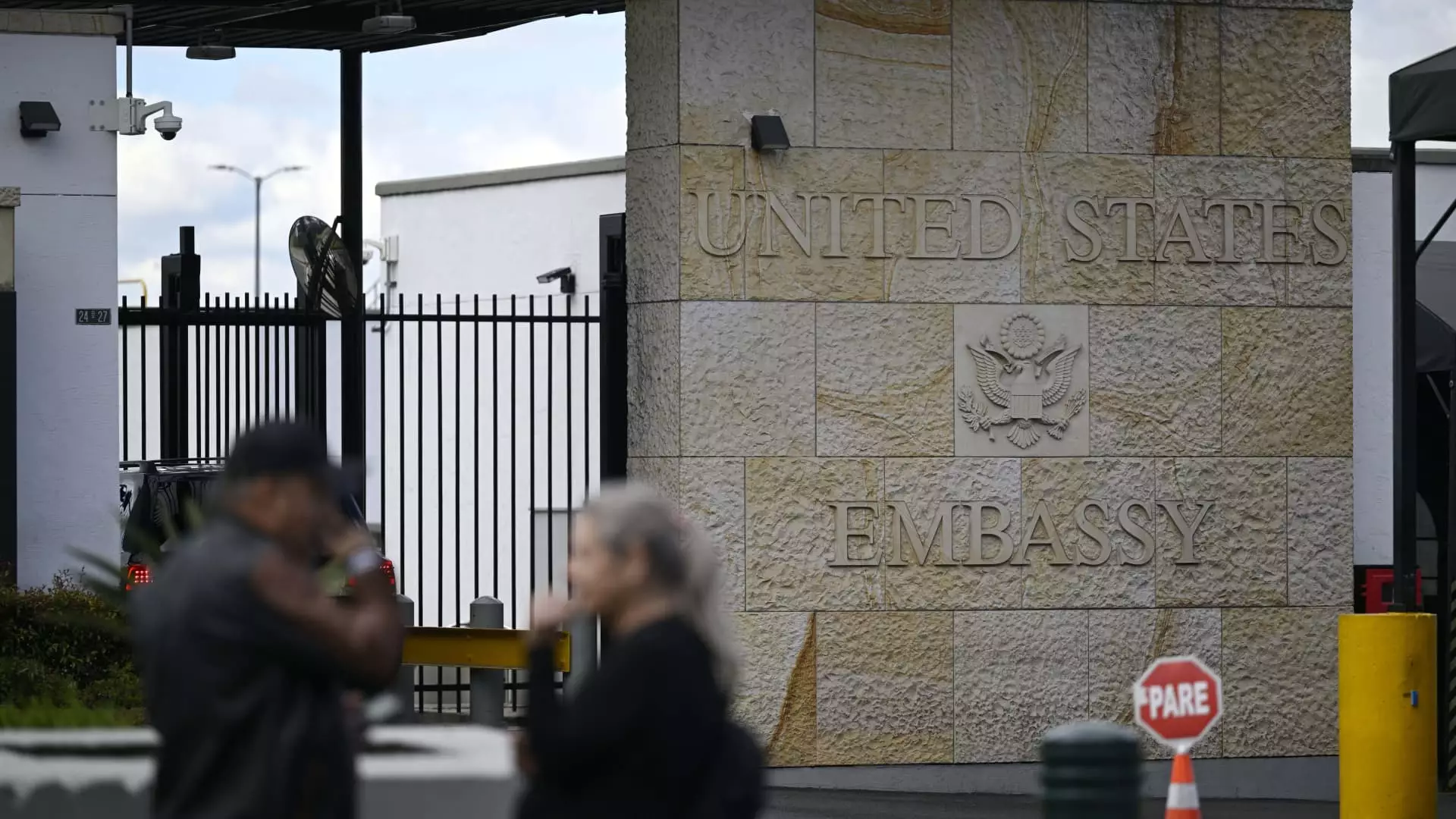The Trump administration has initiated significant changes to the structure and operational capacity of U.S. embassies globally, invoking a strategic pivot in American diplomacy. In a move aimed at reconfiguring the diplomatic corps, reports have surfaced that U.S. embassies are preparing for personnel reductions. These cuts are not merely bureaucratic adjustments; they signal an ideological shift in the foreign policy landscape of the United States under President Trump, who has long favored a more streamlined government.
Sources close to the matter have disclosed that embassy staff worldwide may face reductions of 10% across both American and locally-employed staff. Such a directive illustrates a broader strategy to reassess the need for diplomatic presence and personnel in a world increasingly viewed through a lens of national self-interest. The implications of this shift are vast, potentially altering the U.S. role in global diplomacy and international relations.
These staffing reductions are occurring alongside a broader restructuring effort initiated by an executive order to revamp the foreign service. This executive directive mandates Secretary of State Marco Rubio to ensure alignment with Trump’s “America First” policy. The methodology underlying this initiative reflects a hardline approach to evaluating the effectiveness of diplomatic missions.
A critical aspect of this paradigm shift involves the evaluation of “patriotism” within the ranks of the foreign service; those deemed disloyal to the president’s goals face professional repercussions, including potential termination. This oversight raises questions about the impact on diplomatic efficacy. The emphasis on loyalty over experience could lead to a loss of institutional knowledge that has historically been vital in navigating complex international waters.
In a further effort to reduce expenditures and streamline operations, the State Department has also initiated cuts among contractors, with about 60 terminations occurring in the Bureau of Democracy, Human Rights, and Labor. This move reflects a tendency to scrutinize not only U.S. personnel but also the roles filled by local workers who contribute to the embassy’s conduct and diplomacy. The inclusion of locally hired staff in reduction plans raises concerns about the implications for U.S. relations with host countries, as these employees often serve as vital links to local communities and cultures.
The termination of contractors, coupled with staff cuts, produces a troubling combination; it can hinder the effectiveness and efficiency of diplomatic operations, limiting the capacity to engage in nuanced diplomatic negotiations essential for U.S. interests abroad.
President Trump’s foreign policy has been decidedly grounded in the “America First” doctrine, which prioritizes U.S. national interests sometimes at the expense of traditional diplomatic engagement. The current restructuring efforts, including the freeze on foreign aid and the scrutiny of capacities within agencies such as USAID, represent a concerted effort to refocus American priorities.
Moreover, the directive to possibly revise the Foreign Affairs Manual signals a desire to reestablish not only the operational framework of the State Department but also the philosophical underpinnings of how U.S. diplomacy functions. Historical norms of multilateralism and global engagement are under threat as the administration’s agenda seeks to eradicate perceived bureaucratic inefficiencies associated with traditional diplomacy.
The unprecedented changes underway in U.S. embassies worldwide exemplify a profound transformation in American diplomatic policy under President Trump. The push for staff reductions, evaluation of patriotism, and alignment with an “America First” agenda indicate a seismic shift away from the diplomatic frameworks established by previous administrations. As diplomatic missions adapt to these cuts and changes, their ability to effectively engage with global partners may be tested, potentially limiting the U.S.’s influence on the international stage.
In essence, these strategies reflect a broader ideological commitment to reimagining the U.S.’s role in global affairs, where the importance of loyalty to presidential directives supersedes traditional diplomatic practice, potentially leaving a lasting legacy on how the United States engages with the world. As these changes unfold, the global community watches closely, assessing not just the immediate impacts but the long-term implications for international relations in a rapidly evolving geopolitical landscape.

